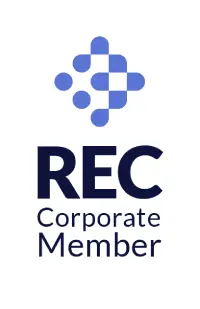As we come out of the shadows of the pandemic, we are staring at a nursing profession with unprecedented challenges. Recent data shows that the nursing shortage is worsening day by day. A recent 2023 survey showed that 91% of nurses believed that the situation was worsening. According to predictions by the Health Resources and Services Administration, or HRSA, by the year 2030, the U.S. will face a deficit of 206,553 nurses because the predicted fulfillment of nursing demand drops from 98% to 94%.
Understanding of Causes Contributing to the Nursing Shortage
The nursing workforce is aging, and thus, a significant percentage of the population is approaching retirement age. Coupled with the swelling burnout wave in the current population, it heightened the shortage. Quite a number of nursing professionals continually complain about their work environment, meaning that a change in the system would help in attracting and retaining talent.
The entry point to nursing is also limited. The U.S. requires 84,000 new nursing students annually, but the schools that already exist only accommodate 65,000 because of tuition costs and the lengthy nature of nursing courses. This gap arises due to high tuition costs and the lengthy duration of the nursing course, among other things. Solutions in place include Public Health Service tuition scholarships and proposals to reduce nursing programs from 30 months down.
Additional Read: WHO Report: Over 5 Million Nurse & Midwife Jobs Unfilled by 2030
Future Prospects for Change
While the shortage is serious, there are policy interventions that can mitigate the gap. Legislative efforts, for instance, include the National Urgent Recruitment for Skilled Employees (NURSE) Visa Act. This will create 20,000 nonimmigrant visas each year for nurses in medically underserved areas. This policy represents a rising tide of strategic workforce expansion.
Another recently proposed bill would award $10 million in federal grants to nursing schools to establish accelerated degree programs. Accelerated degree programs for people holding existing degrees will enable them to become part of the workforce of nurses much sooner. This strategy caters to short-term needs for nursing but also builds the educational capacity needed to continue supplying the workforce.
Maintaining Early-Career Nurses
Early-career nurse retention is critical. A Health Affairs report last year showed an alarming decline in the number of registered nurses under age 35, losing more than 100,000 RNs in 2021 alone. Organizations must learn to improve workplace conditions, mental health support, and more comprehensive training programs to address the loss of early-career nurses. Mentorship can be one big aid in easing a new nurse’s role, given the support system at work.
Another recent research finds that there is a large gap between the needs of frontline employees and the offers of employers. Therefore, it is quite important to close the gap. Competitive compensation, effective benefits, and a clear framework for career advancement can ensure that a motivated workforce is retained. This can enable healthcare organizations to take care of the personal problems that affect most of the nurses.
Wrapping Up
The nursing crisis presents challenges as well as opportunities for the sector. For example, moving from improved working conditions to targeted support for the earliest career points can be used to strengthen the resilience and engagement of the workforce. Sustainability in the future of nursing will depend on the healthcare organizations, policymakers, and industry leaders working well together.
We at Dynamic Health Staff are committed to the support of nurses within this very turbulent landscape. Help and solutions are given that are tailored especially to their needs, empowering nurses to succeed in their positions. Let’s work together to strengthen our nursing workforce. If you want to stay updated and are looking to find a better opportunity abroad as a nurse, contact us today at enquiry@dynamichealthstaff.com or +919810017608 for more information!
Reach out to us today: Dynamic Health Staff!






